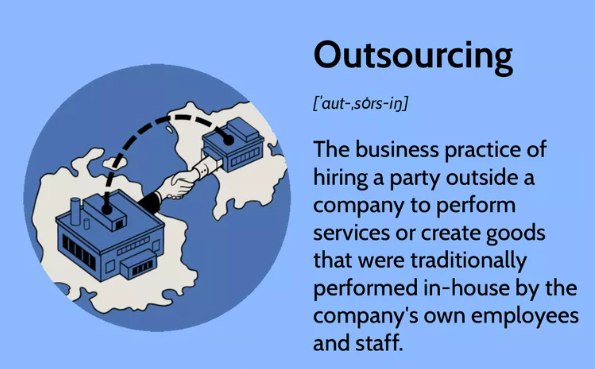Scaling a Business: When to Hire and When to Outsource
Scaling a business is every entrepreneur’s dream but it also comes with tough decisions. One of the biggest challenges is knowing when to hire employees versus when to outsource tasks. Both options have benefits and drawbacks, and choosing the wrong path can slow growth, drain resources, or create inefficiencies.
If you’ve reached the point where you can’t do it all yourself, this guide will help you figure out the best approach for your business.
The Challenges of Scaling
In the early stages, most entrepreneurs wear many hats handling sales, marketing, operations, and even customer service. But as the business grows, doing everything alone becomes impossible. You’ll face bottlenecks, missed opportunities, and burnout.
At this point, you must decide: Should you hire in-house staff or outsource to external experts?
When to Hire Employees
Hiring makes sense when you need long-term, consistent support that’s central to your business.
Signs It’s Time to Hire:
-
Core Business Functions Need Full-Time Attention
For example, if customer support or sales requires daily oversight, bringing someone in-house may be best. -
You Want to Build Company Culture
Employees are more invested in the brand’s mission, making them better for roles where loyalty and alignment matter. -
You’re Ready for Long-Term Growth
If you can provide steady work and salary, employees bring stability and continuity.
Benefits of Hiring:
-
Commitment and loyalty to the company
-
Easier collaboration and control
-
Builds internal expertise over time
Downsides:
-
Higher fixed costs (salaries, benefits, training)
-
Legal and HR responsibilities
-
More difficult to scale down during slow periods
When to Outsource
Outsourcing is ideal when you need specialized skills or temporary support without the long-term costs.
Signs It’s Time to Outsource:
-
You Need Expertise You Don’t Have In-House
Tasks like digital marketing, IT support, or bookkeeping can often be done more efficiently by external pros. -
Your Workload Fluctuates
If demand is seasonal or project-based, outsourcing gives you flexibility. -
You’re Not Ready for the Overhead of Hiring
Outsourcing can be more cost-effective while still helping you scale.
Benefits of Outsourcing:
-
Lower upfront costs
-
Access to highly skilled experts
-
Flexibility to scale up or down
Downsides:
-
Less control over processes
-
Potential miscommunication if expectations aren’t clear
-
Some lack of loyalty or long-term commitment
How to Decide: Hire vs. Outsource
Ask yourself these key questions:
-
Is this task core to my business or a support function?
-
Do I need this role long-term or only occasionally?
-
Am I prepared for the financial and legal responsibilities of hiring?
-
Will outsourcing give me faster access to expertise I don’t have?
A good rule of thumb:
-
Hire for core roles that define your business identity (e.g., product development, sales, customer relationships).
-
Outsource support roles that are important but not central to your mission (e.g., IT, payroll, design, marketing campaigns).
Final Thoughts
Scaling is about working smarter, not harder. The decision to hire or outsource doesn’t have to be permanent you can start by outsourcing, then transition to full-time hires once your business grows.
The key is balance: keep your in-house team focused on what makes your business unique, and outsource the rest to experts who can help you move faster.
By making the right choice at the right time, you’ll scale with confidence and efficiency.


